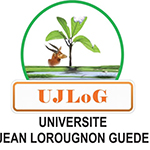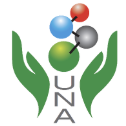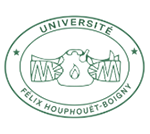Detailed introduction of Félix Houphouët-Boigny National Polytechnic Institute:
Introduction
Félix Houphouët-Boigny National Polytechnic Institute is an influential public polytechnic institute in Côte d'Ivoire, named after the country's first president, Félix Houphouët-Boigny.
Overview
Established in 1996.
Nature of institution: non-profit public higher education institution.
Student size: about 6,000-6,999 students.
Campus distribution: The main campus is located in Yamoussoukro, with a branch in Abidjan.
Subject majors: It offers pre-bachelor's degree (such as certificate, diploma, associate degree or foundation degree), bachelor's degree, master's degree and doctoral degree programs, covering applied arts, classics, design, education, fine arts, history, literature, museology, performing arts, philosophy, religion and theology, visual arts, accounting/finance, anthropology/archaeology and other fields.
History
The college was formed by the merger of four universities in Yamoussoukro, including the National School of Public Works, founded in 1962, the National School of Agronomy, founded in 1965, the Bouake Agricultural Institute, founded in 1977, and the National Institute of Higher Technical Education, founded in 1975. In 2011, the Ivorian government appointed a new dean of the college, took measures to revitalize the college, and obtained some support from France through a debt relief and development contract signed with France.
School Strength
Teaching Staff: It has an experienced and high-quality teaching staff to provide students with high-quality teaching and guidance.
Teaching Facilities: It has academic and non-academic facilities such as libraries and sports facilities to provide students with good learning and living conditions.
Research Capacity: It carries out scientific research activities in multiple disciplines and has made important contributions to the scientific and technological progress and economic development of Côte d'Ivoire.
Educational Philosophy
Focus on cultivating students' practical ability and innovative spirit, and is committed to providing students with high-quality education and training so that they can quickly adapt to the needs of society and the workplace after graduation. Students are encouraged to actively participate in scientific research and practical activities, cultivate their practical ability and problem-solving ability, and also pay attention to the moral education and social responsibility of students, and strive to cultivate students into moral, responsible and innovative professionals.
Key laboratories and disciplines
There is currently no specific information about the key laboratories of the college. Its advantageous disciplines include agronomy, computer science, mechanical engineering, chemistry, business management, geology, mining engineering, civil engineering, etc.
Departments
The college consists of the following higher education institutions:
Higher School of Agronomy (École Supérieure d’Agronomie, ESA): provides courses and training related to agronomy.
Higher School of Industry (École Supérieure d’Industrie, ESI): mainly involves computer science, machinery and chemistry.
Higher School of Commerce and Enterprise Management (École Supérieure de Commerce et d’Administration des Entreprises, ESCAE): provides courses in business research and management, marketing and insurance.
Higher School of Mines and Geology (École Supérieure des Mines et de Géologie, ESM): Focuses on mining and geology, oil extraction/processing and water treatment.
Higher School of Public Engineering (École Supérieure des Travaux Publics, ESTP): Provides education and training related to civil engineering.
School of Continuing Education and Training for Cadres (École de Formation Continue et de Perfectionnement des Cadres, EF CPC): Mainly responsible for continuing education and management development training.
Doctoral School of Technology (École Doctorale Polytechnique, EDP): Provides doctoral education and research.
Rankings
Ranked 7637th in the world and 1st in Côte d'Ivoire in the 2024 UniRank World University Rankings.
Costs
There is no public information on the specific costs of the school, but as a public institution, tuition fees are likely to be relatively low, and scholarships or grants may be available for eligible students.
Campus Environment
The college has three main campuses, namely the South Campus, the North Campus and the Central Campus. The South Campus was originally the National School of Public Engineering, and is now the site of the Civil Engineering and Mining Schools, and the dormitories are also located on this campus; the North Campus was originally the Bouake Agricultural Research Institute and the National School of Agronomy, and is now the site of the Agronomy, Continuing Education and Doctoral Schools; the Central Campus was originally the National Higher Technical Education Institute, and is now the site of the Industrial and Commercial School. There is also a small satellite facility in Abidjan, which houses an accounting training center and a business promotion and relationship service department.
-

Jean Lorougnon Guédé University
-

Nangui Abrogoua University
-

Félix Houphouët-Boigny National Polytechnic Institute
-

Félix Houphouët-Boigny University
-

National Higher School of Statistics and Economics
-

Mesoamerican University
-

Istmo University
-

Mariano Galvez University of Guatemala
-

Regional University of Guatemala
-

Galileo University
-

Francisco Marroquín University
-

Rafael Landívar University
-

University of the Valley of Guatemala
-

University of San Carlos of Guatemala
-

Technological Institute of Tlaxcala Plateau
-

Golfo University
-

Technological University of South Sonora
-

Technological University of Huejotzingo
-

Tizimín Institute of Technology
-

Chilpancingo Institute of Technology
